What's new
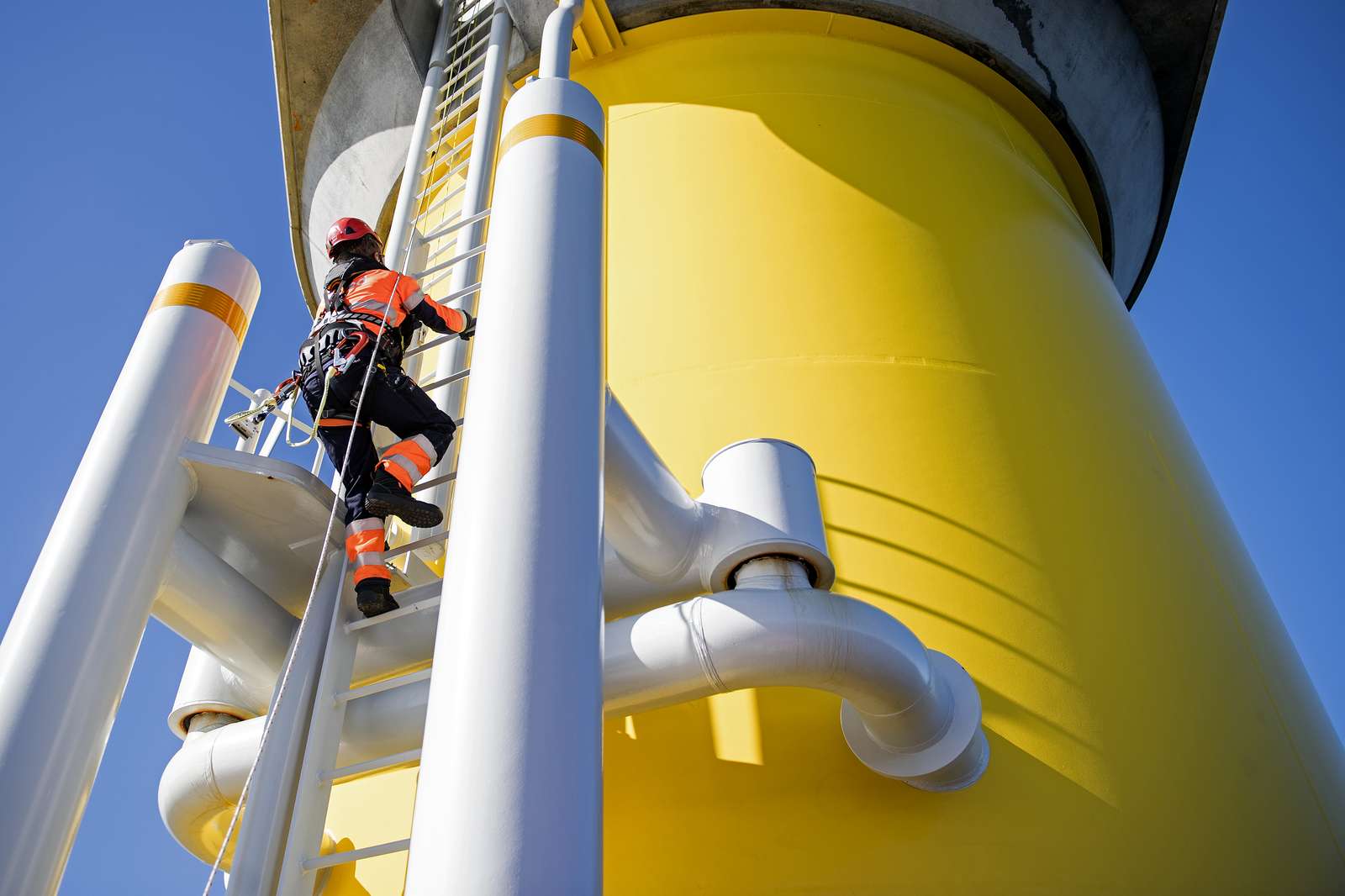
Medical fitness assessment for wind turbine workers
03/2025
This guidance document provides a framework to assist in undertaking the medical fitness assessment for personnel working in the wind energy sector. It aims to provide a consistent, industry-aligned approach to medical fitness evaluations, processes, terminology, and the interpretation of results. By doing so, it enables contractors and workers to transition seamlessly across providers through a fair and standardised assessment system.
The guidance has been developed by experienced clinicians, working and undertaking regular medical assessments in the onshore and offshore wind industry, and incorporates lessons learned from the wider offshore energy industry.
This guidance document relates to medical fitness assessments and not statutory health surveillance.
Publication

The quality of aviation fuel available in the United Kingdom annual survey 2018-2019
03/2025
This report, jointly funded by the Coordinating Research Council (CRC) and the Energy Institute (EI), contains a summary of the data relating to the specification properties for AVTUR (Jet A-1) supplied in the United Kingdom during 2018-19.
The data, which have been supplied by oil companies and associated test houses for batches of aviation fuel released during 2018 and 2019, are expressed in the form of histograms and mean values graphically compared over the period 1986–2019.
This report is the 40th in a series of survey reports.
Publication

SafetyOn and G+ workshops report: Electrical safe system of work
02/2025
SafetyOn and G+ have been working collaboratively with the EI to enhance safety protocols in the onshore and offshore wind industry through the Safe System of Work (SSOW) workshops. These workshops, attended by industry professionals including electrical engineers, authorising engineers, health, safety and environment (HSE) professionals, and training providers, focused on refining and standardising the WTSRs. The aim was to ensure a consistent and robust approach to safety that could be adopted globally across the wind industry. This report outlines the proceedings and findings from those workshops.
Publication
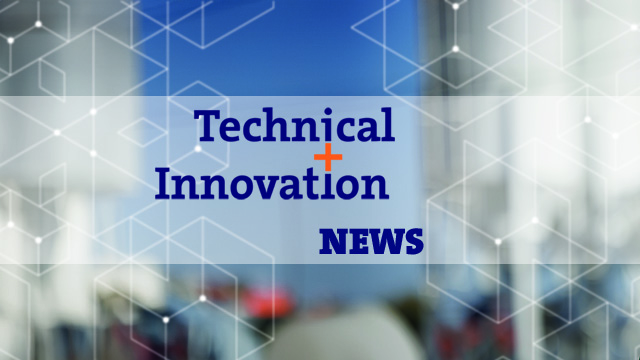
Offshore wind safety performance mixed amid record 61.9 million hours worked
13/06/2024
New data published today by the G+ Global Offshore Wind Health and Safety Organisation, based at the Energy Institute, outlines a mixed picture in the 2023 Incident Data report as the industry’s operations grow and mature. Members of G+ - comprising the biggest offshore wind operators and wind turbine OEMs globally - reported 1,679 incidents in 2023, a 94% increase from 2022.
Media release

Hear from our EI members
10/02/2025
Hear from our EI members, including Lisa Rebora FEI, Aleida Rios CEng FREng FEI, and Jim Rijks AMEI, about how the energy industry can benefit from being involved in the technical work that the Energy Institute carries out.
Video
EI Technical + Innovation key work areas
EI Technical + Innovation’s work can be divided into three overlapping themes, developed through member collaboration, dialogue with regulators, academia and wider stakeholders. Click each theme to discover last year’s highlights and this year’s activities.
The energy transition
Carbon capture usage and storage (CCUS)
Key work area: Carbon capture usage and storage (CCUS)
Facilitating the expansion of carbon capture and storage operations
Key highlights
The energy industry predicts that fossil fuel production will continue into the 2070s. Carbon capture, usage and storage (CCUS) will be key to mitigate the impact of continued usage of fossil fuels (as well as energy from waste) during the energy transition.
The CCUS work programme addresses technical challenges to ensure the safe deployment of the technology, including re-purposing of existing infrastructure, carrying out major hazard analysis, and developing standards and good practices in plant design and operations for onshore and offshore CCUS installations and facilities.
Current programme
The EI's focus in 2024 and beyond will include:
- Updating existing guidance on Hazard Analysis and Good Plant Design.
- Developing guidance to facilitate the transport of CO2 through pipelines, including repurposing of pipelines and new pipeline design.
- Building understanding on running ductile failure and fracture propagation for onshore and offshore pipelines transporting CO2 and developing good practice on how to calculate propagation accurately and reduce uncertainty and design pessimism.
The purpose of this work is to engage a wide range of stakeholders to capture and develop knowledge and address the technical challenges that need to be overcome to facilitate global CCUS deployment.
Recent publications
The EI is proud of collaborating with the following organisations in our programme development:

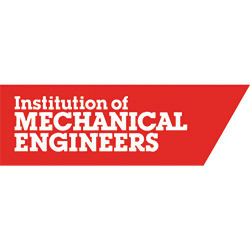
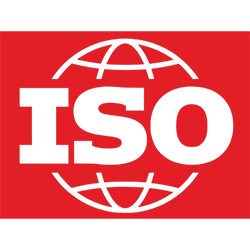









Hydrogen
Key work area: Hydrogen
Understanding and addressing technical challenges for the deployment of a hydrogen economy
Key highlights
Options to decarbonise the energy system include hydrogen and its derivatives (e.g., ammonia) as energy carriers. The hydrogen work programme considers the value chain from the various means of hydrogen production through to its different uses. This publication focuses on independent technical and techno-economic research, as well as good practice development, bringing together global operating companies, policy-makers, regulators, consultancies, service providers, academia, trade associations and likeminded stakeholder organisations.The work programme covers process safety, asset integrity, environmental assessment (lifecycle analysis), plant design (e.g., filling stations), quality determination (e.g., fuel cell quality) and quantity determination.
Current programme
The EI's focus in 2024 and beyond will include:
- Understanding the Health, Safety, Security and Environment (HSSE) issues associated with large scale use of ammonia and methanol in maritime transport fuel as well as transported commodities.
- Providing guidance on green energy production, guidance on the design, construction, operation and maintenance of green hydrogen production plant, and co-location of green hydrogen production with renewable plant (being delivered under the Power Systems programme).
- Hosting webinars to disseminate knowledge on energy balance and efficiency of hydrogen value chains, safety case development and asset integrity in repurposing natural gas infrastructure.
- Addressing broader industry issues around ‘incident data’ availability for hydrogen and ammonia to assist in safety case development .
- Engaging stakeholders both within the UK and internationally to understand the range of challenges faced by companies integrating into the hydrogen space and how such challenges can be resolved.
Recent publications
The EI is proud of collaborating with the following organisations in our programme development:


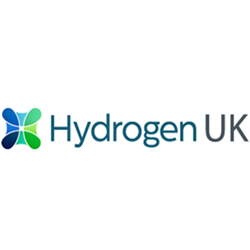



Offshore wind
Key work area: Offshore wind
Driving world-class health and safety performance in offshore wind
Key highlights
G+ is the Global Offshore Wind Health and Safety Organisation that brings together the offshore wind industry to pursue shared goals and outcomes. It is run in partnership with the EI, which provides the secretariat and supports its work. The G+ publishes yearly incident data to establish the industry risk profile and determine where efforts should be focused to improve health and safety performance. From this, Good Practice Guidance is developed and Good Practice workshops held.
Current programme
- Annual G+ Global Offshore Wind Organisation incident data report
- Working at height in the offshore wind industry
- G+ Offshore wind farm transfer
- Standard and good practice guidelines for safe helicopter operations in support of the global offshore wind industry
- G+ Floating offshore wind hazard identification (HAZID)
- Wind turbine safety rules (WTSR)
Recent publications
The EI is proud of collaborating with the following organisations in our programme development:
Onshore wind
Key work area: Onshore wind
Leadership in health and safety for a dynamic and innovative onshore wind industry
Key highlights
SafetyOn is the health and safety organisation for the onshore wind sector, ensuring transparency for the industry’s health and safety performance, and assisting stakeholders to mitigate existing and emerging risk through cooperation and shared learning. Working through the EI, SafetyOn is an open network of safety and health experts, professionals and stakeholders promoting a strong, sustainable and continually improving health and safety culture. Thousands are employed in the UK’s onshore wind industry and SafetyOn is playing a part in making sure they get home safely
Current programme
- Annual SafetyOn onshore wind incident data report
- Traffic management for onshore wind farms
- Post-incident decommissioning of onshore wind turbines
- SafetyOn onshore emergency response good practice guidelines for onshore wind energy developments
- Contractor engagement and behavioural safety in onshore civils
- Wind turbine safety rules (WTSR)
Recent publications
The EI is proud of collaborating with the following organisations in our programme development:
Power systems
Key work area: Power systems
Working with global stakeholders to facilitate the transition to a low-carbon power system
Key highlights
- Developed guidance on the design, construction, operation, and co-location of green hydrogen production plants. Expected publication Q2 2024
- Developed guidance for gas-fired power station operators to assess readiness to accept hydrogen-natural gas blends as fuel (2%, 20%, 100%). Expected publication Q2 2024
- Published guidance on large-scale solar photovoltaic design, construction and operation
- Published report on lifecycle analysis to assess the sustainability of different energy storage technologies
Current programme
The EI's focus in 2024 is:
- Continue development of guidance on co-location of battery storage with renewable plant
- Publish a safe system of work for the energy sector
- Update guidance to help operators comply with NIS2 regulations (cybersecurity).
- Update guidance on safe storage and handling of biomass
- Develop guidance for safe working practices on and around battery energy storage facilities
- Update guidance on static electricity and electrical supply protection
Recent publications
The EI is proud of collaborating with the following organisations in our programme development:
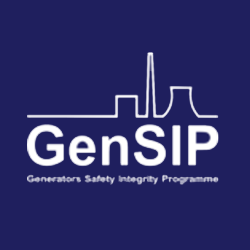

Health, safety and environment
Asset integrity and life extension
Key work area: Asset integrity and life extension
Championing asset integrity management and age and life extension
Key highlights
Existing and maturing structures, plant, equipment or systems that could either cause, or contribute to, a major accident, should be managed effectively to prevent failure or limit its consequences. The EI is championing age and life extension and asset integrity management for structures and structural components. We support the global industry with a focus on:
- Structures
- Rotating equipment
- The influence of the (extreme) offshore environment
- The negative impacts of climate change
- Corrosion under insulation
Our focus began with offshore oil and gas installations but has now expanded to offshore wind.
Current programme
- Guidance for Asset Integrity for Offshore Wind Turbines
- Guidance for Asset Integrity for Hydrogen
- Guidance for Use of Polymer Based Repair Compounds “Repair Putties” in Integrity Management
- Guidance for Asset Integrity for Late Life
- Guidance for Asset Integrity for LNG Operations
- Guidance for Comparison of LOADS JIP with AWARE project
- Guidance for Implications of LOADS JIP findings for Integrity Management Strategies
- Guidance for Deferral decision making (with OEUK involvement)
- New Edition MIC Guidance
- New Edition Caissons Guidance
- Position Paper, Floating Wind Structures
- Position Paper, Extreme Environmental Loading of Floating Structures
Recent publications
The EI is proud of collaborating with the following organisations in our programme development:
Environment and sustainability
Key work area: Environment and sustainability
Supporting the transition to a low-carbon and sustainable future for all
Key highlights
The work of the EI's Environment Management Group (EMG) focuses on the impact the energy industry has on the environment. In particular, it provides scientific data on which the industry can base its stance on environmental issues. EMG’s strategy is to enable the energy industry to operate sustainably, including by reducing methane emissions from oil and gas operations, integrating sustainability principles (e.g. circularity) into the lifecycle of projects, and measuring performance against global benchmarks.
The technical work of the EMG covers:
- Emissions (air, water and soil)
- Upstream oil and gas
- Offshore wind
- Circularity
- Waste
Current programme
- Energy retail stations green guide
- Waste to products – technology and economic assessment
- Embedding circularity into construction and decommissioning of assets
- Guide to predicting environmental recovery durations from major accidents
- Guidance on environmental risk tolerability for COMAH establishments
- Recommended practices for methane detection and quantification
Recent publications
The EI is proud of collaborating with the following organisations in our programme development:
Health
Key work area: Health
Protecting worker health
Key highlights
The Health Technical Committee (HTC) advises industry on all health issues relevant to the international energy sector. This includes the health aspects of employees, customers and the public who may be impacted by the activities and products of the industry. HTC members are generally registered medical practitioners, certified occupational hygienists or senior medical professionals within their organisation.
Key areas covered by the HTC's work programmes include:
- Industry medical issues
- Occupational health
- Physical fitness and capability
- Air quality and emissions
Current programme
- Occupational health assessment for wind turbine workers
- Psychological wellbeing in the workplace
- Literature review on the burden of common respiratory disease across the wind industry
- High-level framework for the effective governance and delivery of emergency medical response and first aid provision across the renewables sector
- The prevalence of acute coronary syndrome (ACS) cases across the offshore energy sector
- Investigation into exposures associated with diesel engine exhaust emissions from fixed and mobile installations and equipment used across the energy industries
- Guidance on selection and deployment of wearable technologies for occupational health and personal exposure monitoring
- Guidance on identifying and managing occupational health hazards during operation and maintenance of wind farms
- Guidance on selection of optimal noise reduction options and strategies in the energy sector
Recent publications
The EI is proud of collaborating with the following organisations in our programme development:
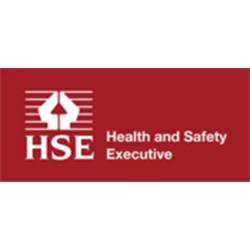



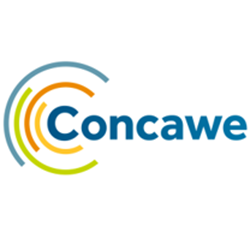
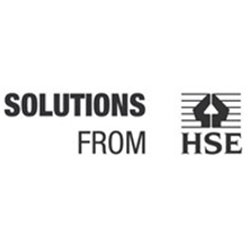








Human and organisational factors
Key work area: Human and organisational factors
Managing risk by supporting human performance
Key highlights
- Published a self-assessment tool called QUESTOR, based on analysis of 12 major accidents
- Published research on the use of causal loop diagrams to model incidents and design better interventions to improve
- Adopted and developed a human factors design handbook to help designers understand basic ergonomics requirements. Expected publication Q1 2024
- Carried out workshop to explore the extent of human factors integration in energy transition projects (wind, hydrogen, CCUS)
- Developed guidance on integrating human factors into a process safety management system
Current programme
- Integrating human factors into risk assessments.
- Developing a new human factors online training course to support the EI Human Performance Pathway.
- Addressing human factors issues in automated systems.
- Developing short human factors videos for frontline workers.
- Revising guidance on learning from incidents.
- Finalising new guidance on human error probabilities in quantitative risk assessment.
Our focus in 2024 is:
Recent publications
The EI is proud of collaborating with the following organisations in our programme development:


Process safety
Key work area: Process safety
The control of major accident hazards
Key highlights
Major accident hazards include those substances which offer substantial threats to worker and public safety, physical assets and the environment, typically as a result of fires, explosions, or toxic releases. Process safety seeks to both prevent the loss of containment of major accident hazards and to mitigate the consequences of that loss. The EI's Process Safety Committee commissions research and provides guidance on process safety issues.
EI process safety publications cover:
- Process safety leadership
- Risk assessment
- Risk management
- Review and improvement
Current programme
- Guidance on maintaining barrier effectiveness in major accident prevention
- Understanding the availability, reliability, and extent of onshore loss of containment failure rate data used in quantitative risk assessment
- Adaptation of the following process safety publications to new energy fuels and their application:
- Guidance on applying inherent safety in design: Reducing process safety hazards whilst optimising CAPEX and OPEX
- Guidance and toolkit for training on emergency decision making in loss of containment incidents
- Guidance on passive fire protection for process and storage plant and equipment
- Development of risk targets for layer of protection analysis (LOPA)
- Guidance on management of technical change
- Research into the conduct of remote hazard studies
- Research study how contractual arrangements impact the standing of process safety
Recent publications
The EI is proud of collaborating with the following organisations in our programme development:
Fuel quality and management
Aviation fuel handling
Key work area: Aviation fuel handling
Managing aviation fuel – safety, efficiency and quality – from refineries to aircraft worldwide
Key highlights
The work of the EI's Aviation Committee is essential for the safety of over 100,000 air passenger flights globally every day. Standards, guidance, equipment specifications and animations are all produced to assist in the reliable and safe provision of aviation fuel to commercial aircraft.
The work is conducted by the following subcommittees: Aviation Fuel Filtration; Equipment; Operations; Hydrant Systems; and Supply Chain Fuel Quality and Sustainability.
Current programme
- EI/JIG Standard 1530 Quality assurance requirements for the manufacture, storage and distribution of aviation fuel to airports
- EI 1540 Design, construction, commissioning, maintenance and testing of aviation fuelling facilities
- EI 1550 Handbook on equipment used for the maintenance and delivery of clean aviation fuel
- EI 1560 Recommended practice for the operation, inspection, maintenance and commissioning of aviation fuel hydrant systems and hydrant system extensions
- EI 1581 Specifications and laboratory qualification procedures for aviation fuel filter/water separators
- EI Research Report: GHG emissions associated with aircraft refuelling
Recent publications
The EI is proud of collaborating with the following organisations in our programme development:
Correlation schemes
Key work area: Correlation schemes
Fundamental for quality control
Key highlights
The EI runs a well-established and globally recognised suite of proficiency testing programs
Engine Correlation Scheme (ECS)
The Engine Correlation Scheme (ECS) is specifically aimed at laboratories determining the Research Octane Number (RON), Motor Octane Number (MON) and Cetane numbers of gasoline and diesel fuels
Samples are distributed globally monthly. Data entry and report download are via a dedicated website. Reports contain Z-scores and standard deviations. Participation in the ECS is essential to prevent giveaways.
The EI Proficiency Testing Scheme (EI PTS)
With over 70 laboratory participants worldwide, the EI PTS is one of the largest schemes available for testing gasoline, diesel, Jet fuel, and fuel oils. The scheme covers all the important specification tests for these fuels. The monthly reports are tailored for each individual laboratory and include the mean, standard deviation, Z-score, and EWMA trendlines for each test method.
The EI-PTS allows your laboratory to be benchmarked against global peers.
Recent publications
The EI is proud of collaborating with the following organisations in our programme development:
Crude oil voyage loss benchmarking
Key work area: Crude oil voyage loss benchmarking
The essential scheme for loss control
Key highlights
The HMC-4A Marine Oil Transportation Committee, oversees a programme focusing on losses of crude oil shipped by sea-going vessels and river barges. The membership comprises over 20 oil majors and refiners and has been running for over 30 years.
The report issued annually includes analysis by grade, load port, discharge port and vessels for company and global data. Comparing company with global performance allows better understanding of issues and causes of cargo losses.
The appetite for this global benchmarking is as strong as ever and continues to be a valuable asset for committee members. Membership of this benchmarking scheme is included as part of the EI Technical Partner fee. There is an annual fee for other participants.
Recent publications
The EI is proud of collaborating with the following organisations in our programme development:
Fuel distribution
Key work area: Fuel distribution
Supporting the fuels value chain
Key highlights
The Fuels Infrastructure and Distribution Committee develops guidance for issues involved in the supply of fuels to customers. This assists in the safe and efficient provision of the petroleum products we need at the right place and at the right time.
Resources primarily cover equipment used and procedures followed for:
- Bulk storage
- Vapour recovery
- Road tanker operations
- Filling stations
Current programme
- Model code of safe practice part 2: Guidance on the design, construction and operation of petroleum distribution installations
- Design, construction, modification, maintenance and decommissioning of filling stations
- Model code of safe practice part 16: Guidance on tank cleaning
- Petroleum road tanker design and construction
- Guidance for the management of distribution terminal operations
- Investigation into the risk and impact associated with non-diesel fuel engine vehicles, by type, whilst entering or working within hazardous storage locations
Recent publications
The EI is proud of collaborating with the following organisations in our programme development:
Hydrocarbon management
Key work area: Hydrocarbon management
Measurement – the essential tool for management
Key highlights
At various stages during the extraction, transportation, refining, storage and distribution of crude oil, petroleum products and biofuels, there are requirements to measure its quantity and quality for allocation, custody transfer and fiscal purposes, as well as for stock control
and loss prevention.
To enable the oil industry and regulators to carry out such measurements in a standardised manner, the EI Hydrocarbon Management Committee (HMC) develops and issues guidance documents that reflect current industry good practice. The EI HMC manages the work programme covering:
- Upstream
- Refineries
- Marketing and distribution
- Cargo inspection
- Bulk oil transportation measurement activities
Current programme
- HM 25 Guidelines for the assessment of uncertainty in the oil and gas industry
- HM 26 Guide for liquid metering systems
- HM 29 Procedures for petroleum product cargo inspections
- HM 31 Guide to hydrocarbon management in petroleum refinery operations
- HM 50 Guidelines for the cleaning of tanks and lines for marine tank vessels carrying petroleum and refined products
- HM 54 Guidelines for the management of measurement for the upstream oil and gas industry
Recent publications
The EI is proud of collaborating with the following organisations in our programme development:
Test methods standardisation
Key work area: Test methods standardisation
Standardising low-carbon sustainable fuels analysis
Key highlights
The EI is a world-class leader in analytical test method development, publishing IP test methods for hydrocarbon products and future fuels energy carriers such as hydrogen, methanol and ammonia.
The Test Method Standardization Committee (TMS) works closely with international standards agencies, including CEN, ISO and ASTM. Covering fuels, lubricants, bitumen and crude oil, our standards and test methods underpin product quality requirements which have an impact on safety and the environment, in both shipment and use.
TMS also has oversight responsibility for the EI’s Microbiology Committee, which provides technical guidance on microbial issues across the range of energy industry activities.
Current programme
- IP 630, the determination of the concentration of dispersed particles in diesel fuel – automatic particle counter (APC) light obscuration method
- IP 638, the determination of the relative permittivity of Aviation Turbine Fuel, using a small-scale automated temperature scanning instrument
- IP-PM-FI, the determination of the concentration of dispersed particles in methanol fuel - automatic particle counter (APC) light obscuration method
- IP-PM-FK, the determination of the lubricity of methanol, HFRR test method
- Guidelines for the investigation of the microbial content of liquid fuels and for the implementation of avoidance and remedial strategies
- Guidelines on detecting, controlling and mitigating microbial growth in oils and fuels used at power generation facilities
Recent publications
The EI is proud of collaborating with the following organisations in our programme development:
Related EI Technical + Innovation websites

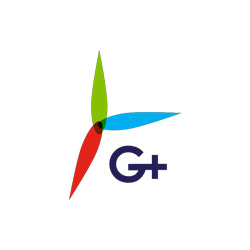
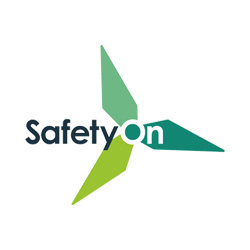

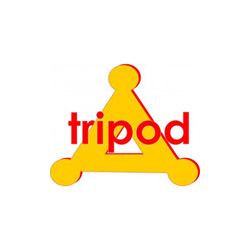
Toolbox
Toolbox is free to use. It holds incident lessons and safety information shared by global energy companies for you to use at work every day, helping you and your team to get home safe. >>
SafetyOn
Providing leadership in health and safety for the dynamic and innovative onshore wind industry, SafetyOn ensures transparency about the industry’s H&S performance, as well as assisting industry stakeholders to see that key emerging risks are mitigated through co-operation and shared learning. >>
G+
The G+ is committed to promoting and maintaining the highest possible standards of health and safety throughout the lifecycle of an offshore wind farm (OWF). >>
Hearts and Minds
The Hearts and Minds Toolkit enables you to create a truly proactive and generative approach to HSE management. >>
Tripod
Improve your ability to learn from incidents with the Tripod Beta methodology. >>